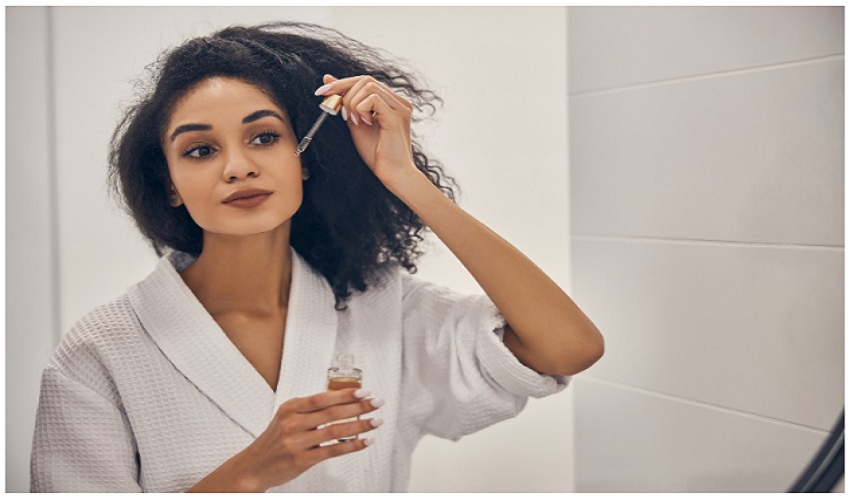Lockdown has provided a unique opportunity for many people, including through better environmental conditions, for taking care of ourself. Unfortunately, one crucial aspect of health that is usually overlooked is proper skincare. Although many of us might be out of harsh office lighting and air conditioning, our skin still requires the same, if not more, attention and love. Different self-care routines have been forced to change during the pandemic, following the national lockdown. We are often reminded to stay healthy and keep fit with regular exercise, but our skin also needs attention in these extraordinary conditions.
Our change in
Harmful UVA And UVB Rays & Blue Light
Despite common misconceptions, our skin still needs SPF whilst we are stuck in our homes. SPF protects us from ultraviolet light, which is emitted primarily from the sun. The majority of SPF products protect our skin from ultraviolet B (UVB) rays, and sometimes ultraviolet A (UVA) rays. UVA rays can penetrate through windows and cause many negative effects on the skin, including hyperpigmentation and fine lines. Your skin still needs to be protected whilst indoors to reduce premature ageing and fatigued skin. Most dermatologists recommend using a broad spectrum SPF 30 or higher to offer protection against cancer-causing UVB rays and prevent ageing.
UVA and UVB rays, however, are not the only negative forms of light which can damage our skin. In a lockdown, we are understandably spending more time indoors and in front of our computer screens. Blue light emitted from our gadgets and indoor lighting can cause skin damage after long periods of exposure. This high energy visible light (HEVL) can cause significant damage if your skin is not protected. The adverse effects occur as blue light stimulates the skin to produce more pigment and reactive oxygen species, causing direct DNA damage.
Sun Burns
Our protective ozone layer usually filters the majority of harmful rays from the sun. Sun exposure is becoming increasingly dangerous as the ozone layer is depleting, causing inflammation and the breakdown of elastin and collagen in the skin. People are enjoying the brighter days of the British summer, spending more time in the sun than any other season combined. However, sustained sun exposure on unprotected skin may cause blistering burns. Treating burns is often a painful, lengthy process which can leave behind stubborn hyperpigmentation marks if not cared for appropriately.
According to recent research, topical cannabidiol (CBD) can be used to treat sunburn and reduce inflammation. CBD oil is a natural and beneficial compound found in Cannabis sativa, which can produce many positive effects on and in your body. This non-psychoactive compound can help to alleviate sunburn-related pain and prevent infection of skin blisters due to its antibacterial properties. The anti-inflammatory properties of CBD can reduce sunburn redness and gently calm the skin as well as promote better skin condition. What’s more, consuming CBD oil can help to reduce stress and anxiety, regulate the sleep cycle, boost mood and energy, improve concentration, and relax body and mind.
Increased Stress Levels
During a pandemic, most of us are under constant stress and anxiety on a subconscious level as we are confined to our homes. However, stress is known to trigger inflammatory skin conditions such as psoriasis, eczema, and acne, so it’s unsurprising that more individuals are experiencing breakouts at this uncertain and stressful time.
To maintain the stress and anxiety levels at bay, try to add yoga, breathing exercises, or meditation in your daily routine to find calm. All of these relaxation techniques are proven methods to lower stress, relax, restore energy, and refocus.
Unhealthy Habits
During the lockdown, it is easy to bring the worst eating habits to the surface and fall prey to junk foods that often include unhealthy levels of sugar, saturated fat, and sodium. While sugary and processed foods might taste good, an indulgence of them contributes to serious health issues, as well as acne and breakouts. Aside from a change in diet, lack of water and poor quality sleep might also cause dry, parched skin.
Sustaining a healthy diet and plenty of water will both improve your body’s internal and external health, including your skin. Hydration during lockdown is key to supple, moisturised skin as consistently moisturising your skin will maintain its healthy barrier function. Therefore, make sure to prioritise a well-balanced diet full of vegetables and fruits that are naturally loaded with vitamins, minerals and antioxidants, and drink at least 1.5 litres of fresh, clean water per day.
Additionally, as our normal daily routines have been disrupted, this also has negatively impacted sleep quality. Getting enough sleep is critical for both mental and physical health, so try to go to sleep and wake up at consistent times and stick to 7 to 9 hours of good quality night sleep each day.
Final Thoughts
It must be said that more indoor time is limiting our skin’s exposure to daily environmental pollution, which is definitely a plus. However, many skincare routines just focus on the skin on your face. Make sure not to neglect the rest of the skin of your body to prevent ageing and sun damage. Simple measures such as protective clothing, shade, and sufficient SPF protection can prevent harmful sun damage to other areas of the body.
Skin cancer accounts for over 16,000 new cancer cases every year in the UK. It is the 5th most common cancer in the UK and often does undiagnosed. Frequent sunburn can double the likelihood of developing skin cancer later in life. However, this is easily preventable with sun protection and close care. Keep reapplying your sunscreen and ensure to use the right products to treat any sunburn or blistering.

